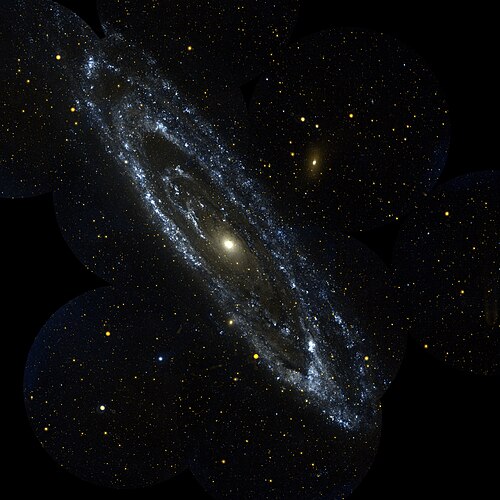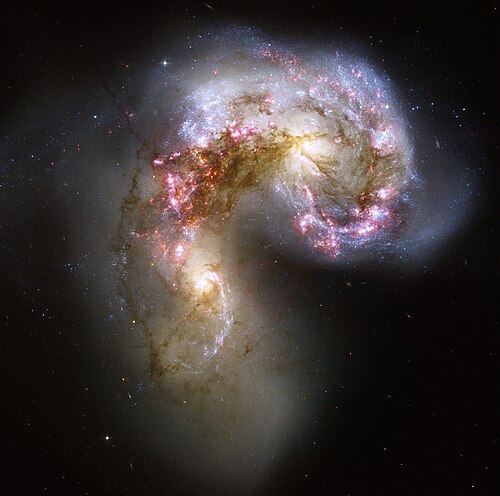Nebulanoun
(astronomy) A cloud in outer space consisting of gas or dust (e.g. a cloud formed after a star explodes).
Nebulanoun
A white spot or slight opacity of the cornea.
Nebulanoun
A cloudy appearance in the urine
Nebulanoun
A faint, cloudlike, self-luminous mass of matter situated beyond the solar system among the stars. The term was originally applied to any diffuse luminous region. Now, technically, it is applied to interstellar clouds of dust and gases (diffuse nebula). However distant galaxies and very distant star clusters often appear like them in the telescope, such as the spiral nebula in Andromeda, known now to be a distant galaxy.
Nebulanoun
A white spot or a slight opacity of the cornea.
Nebulanoun
a medicinal liquid preparation intended for use in an atomizer
Nebulanoun
cloudiness of the urine
Nebulanoun
an immense cloud of gas (mainly hydrogen) and dust in interstellar space
Nebulanoun
(pathology) a faint cloudy spot on the cornea
Nebulanoun
a cloud of gas and dust in outer space, visible in the night sky either as an indistinct bright patch or as a dark silhouette against other luminous matter.
Nebulanoun
a galaxy.
Nebulanoun
a clouded spot on the cornea causing defective vision.
Nebula
A nebula (Latin for 'cloud' or 'fog'; pl. nebulae, nebulæ or nebulas) is an interstellar cloud of dust, hydrogen, helium and other ionized gases.
Galaxynoun
The Milky Way; the apparent band of concentrated stars which appears in the night sky over earth.
Galaxynoun
(galaxy) Any of the collections of many millions or billions of stars, galactic dust, black holes, etc. existing as independent and coherent systems, of which there are billions in the known universe.
Galaxynoun
The Milky Way, that luminous tract, or belt, which is seen at night stretching across the heavens, and which is composed of innumerable stars, so distant and blended as to be distinguishable only with the telescope.
Galaxynoun
A very large collection of stars comparable in size to the Milky Way system, held together by gravitational force and separated from other such star systems by large distances of mostly empty space. Galaxies vary widely in shape and size, the most common nearby galaxies being over 70,000 light years in diameter and separated from each other by even larger distances. The number of stars in one galaxy varies, and may extend into the hundreds of billions.
Galaxynoun
A splendid or impressive assemblage of persons or things; as, a galaxy of movie stars.
Galaxynoun
a splendid assemblage (especially of famous people)
Galaxynoun
tufted evergreen perennial herb having spikes of tiny white flowers and glossy green round to heart-shaped leaves that become coppery to maroon or purplish in fall
Galaxynoun
(astronomy) a collection of star systems; any of the billions of systems each having many stars and nebulae and dust;
Galaxynoun
a system of millions or billions of stars, together with gas and dust, held together by gravitational attraction.
Galaxynoun
the galaxy of which the solar system is a part; the Milky Way.
Galaxynoun
a large group of impressive people or things
Galaxy
A galaxy is a gravitationally bound system of stars, stellar remnants, interstellar gas, dust, and dark matter. The word galaxy is derived from the Greek galaxias (γαλαξίας), literally , a reference to the Milky Way.




























